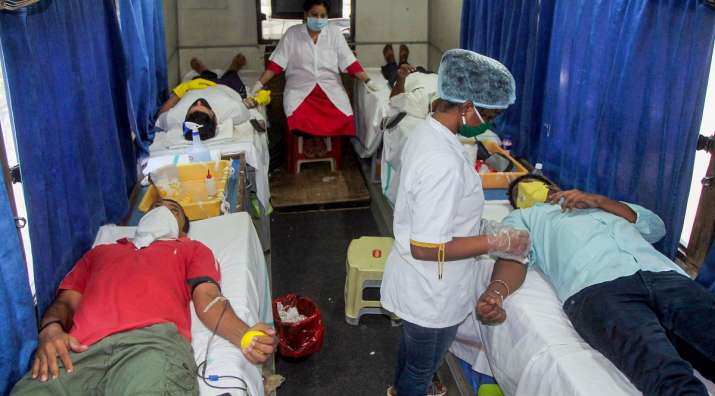
After Chennai, Delhi, COVID-19 death toll mismatch found in Mumbai
Senior BJP leader Devendra Fadnavis on Monday (June 15) alleged that the Maharashtra government has not been reporting has not been reporting the actual number of coronavirus-related deaths in the state.

Senior BJP leader Devendra Fadnavis on Monday (June 15) alleged that the Maharashtra government has not been reporting has not been reporting the actual number of coronavirus-related deaths in the state.
He said that the state has not reported as many as 950 COVID-19 deaths, from Mumbai, which amounts to violation of the ICMR guidelines.
In a letter addressed to Chief Minister Uddhav Thackeray, Fadnavis said, “Some 950 deaths due to COVID-19 are still not reported (in Mumbai). It is a very serious matter and risky as well”.
As on Tuesday (June 16), the number of COVID-19 fatalities in worst-hit Maharashtra stood at 4,128, as per the state government.
Fadnavis claimed 500 of the 950 deaths that had occurred in various hospitals in Mumbai were not even referred to the death audit committee.
Related news: Tamil Nadu now records COVID-19 deaths left out earlier, sees spike
“451 deaths have been termed as non-COVID deaths by the death audit committee. However, as per guidelines of the Indian Council of Medical Research (ICMR), all these deaths had occurred due to COVID-19,” the Leader of Opposition in the Maharashtra Legislative Assembly alleged.
We demand a clarification on under whose pressure the committee reported those deaths as non-COVID-19, he said.
“The BMC (Brihanmumbai Municipal Corporation) has refused to follow the ICMR guidelines and certain deaths were not recorded as occurred due to COVID-19. Despite clear guidelines from the ICMR, why the audit committee showed those deaths as non-COVID-19 deaths?” questioned the former chief minister.
He said the action of the committee was not only condemnable but also criminal in nature.
“There is another incident where some 500 deaths that occurred in various hospitals in Mumbai were not even referred to the death audit committee. I want to know what action state is going to take,” he said and demanded a stern action against the guilty.
Tamil Nadu case
Tamil Nadu faced similar allegations when the state listed 30 deaths related to coronavirus on Saturday (June 13), of which seven were of patients who died weeks before.
According to the data, people who died on May 24, 28, and 31 as well as on June 2, 3, 5, and 7 were listed on Saturday (June 13).
Similarly, the state added previous deaths to its Sunday (June 14) toll, making it 38, the highest single-day record so far. The death of patients who died on June 5, 11 and 12 were reported on Sunday.
Testing charges slashed
In a first for the country, Maharashtra on Saturday (June 13) slashed the charges levied by private laboratories for coronavirus testing by 50 per cent.
State Health Minister Rajesh Tope said that the significant move would make the COVID-19 test fee in the state uniform and lowest in the country.
Related news: 99% ICU beds, 94% ventilators already occupied in Mumbai: BMC
Currently, private labs across India charge between ₹4,500 and ₹5,200 for conducting coronavirus tests and the state government’s move will make the service affordable for all.
“Even several organisations that wanted to conduct tests on their employees found it too expensive and hence we decided to study the issue,” Tope told news agency IANS.
Another crisis
However, on the same day the BMC revealed that about 99 per cent of intensive care units (ICUs) and 94 per cent of ventilators in Mumbai are currently occupied by patients battling the novel coronavirus infection in the city.
Two days after surpassing the number of cases reported by the epicentre of outbreak Wuhan, the BMC on Thursday (June 11) revealed that Mumbai has 1,181 beds in ICUs across the city of which about 1,167 are already occupied.
This indicates that only 14 beds are available for the new patients in the city. It also said that of the 520 ventilators, 497 machines that artificially support the breathing process, are in use, adding that about 76 per cent or 3,986 of the available 5,260 oxygen beds are also occupied.
(With inputs from agencies)

